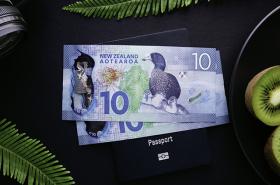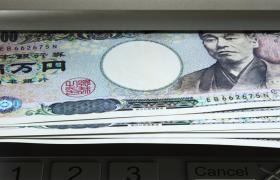Welcome to Friday, everyone. While we can dwell on the fact that it's Friday the 13th, I would instead rather talk about the fact that tomorrow is Pi day (03.14 when using the US date format)! Pie is delicious, and well needed when considering what is happening in the world right now.
As you have no doubt heard, the Coronavirus is running amuck through global financial and foreign currency markets. While there are plenty of factors at play, it all boils down to the fact that markets are not confident in the government's ability to contain the health and economic impacts of COVID-19. Foreign currency markets have not been immune to this uncertainty, and the value of the Kiwi dollar has been impacted.
What has impacted foreign currency markets this week?
No surprises here, but the Coronavirus is all anyone is talking about, so it makes sense that it is the biggest market mover this week. Further to this, public fear and global efforts to stop the spread of the virus have thrown a spanner in the works when it comes to immediate travel plans. While each country has been implementing their own health and economic measures to lessen the impact of the virus, let's deep dive into the US and New Zealand, as they currently have the most significant impact on the value of the Kiwi dollar.
What's happening in the USA?
At the moment, the US Treasury market is suffering from liquidity problems. What does this mean to us? Well, the US Treasury market looks after government bonds and is considered the most liquid financial instrument in the world. Liquidity refers to how quickly an asset can be converted into cash. At the moment, markets are selling their assets to essentially cut their losses as a result of the virus, which requires a lot of funds. This caused the value of the USD to skyrocket to almost three-year highs.
Not only has the New York stock exchange suspended trading for the second day this week to stop the free fall of losses, but the Federal Open Market Committee (FOMC) has stepped in to try and prevent the growing liquidity issues. For the moment, this has helped settle markets slightly and put a lid on the surging USD.
Further to the liquidity stress, markets were hoping President Trump's address on Wednesday would help boost confidence. Instead, it did the opposite as he failed to provide clarity on stimulus measures to maintain the economy. Traders are still waiting on his promised stimulus package to materialise.
This week Trump also put a 30-day travel ban on tourists entering from the Schengen Area in Europe. This is in addition to bans already in place for Iran, China, Italy and South Korea.
As it stands, markets are rushing to buy the USD as it is considered a 'safe-haven currency' or safe investment in times of uncertainty. This has, in turn, put downward pressure on the value of the Kiwi dollar.
What's happening in New Zealand?
There's no denying it, the Kiwi dollar isn't having the best run amidst COVID-19 fears. Unlike the USD, the NZD is considered a 'risky' investment, so markets tend to avoid it in times of uncertainty like this.
When it comes to the government response to the virus, people are in two minds. Opposition leader Simon Bridges has spoken out, claiming the government isn't doing enough to stimulate the economy, especially in terms of tourism, education and exports. Further to this, an increase in the minimum wage is scheduled for the start of April, which many argue needs to be delayed to help business' cope with the impact of the virus.
On the other hand, Prime Minister Ardern has made it clear that the Kiwi economy is in a robust position to deal with the effects of COVID-19. In addition to an earlier investment of $12bn in infrastructure upgrades and targeted income assistance to those directly impacted by the virus, the government is also planning a business continuity package to support the economy through any disruption.
Currently, there are a limited number of infected people in NZ, so markets will no doubt keep monitoring the situation and react accordingly. Fingers crossed the government is correct in its confidence, and the Kiwi economy is well placed to weather out the storm.
What should you do as a traveller?
While the virus has undoubtedly put a spanner in the works, it doesn’t mean you have to cancel your travel plans and lock yourself in a toilet paper fortified dungeon.
Instead, look to travel to countries in the South Pacific, UK or the USA where the virus has yet to reach or is less pronounced. Chances are tourist hot spots are a lot less crowded than usual, so it’s the perfect time to explore yourself.
Alternatively, consider a holiday across the ditch to Australia, particularly to areas in southern NSW, Victoria and South Australia that were hit by the bushfires. That way you can have an epic holiday and know your tourist dollars are helping business’ down there rebuild after the fires.
When it comes to foreign currency, there really is no way of knowing what markets and the value of the NZD will do (if you do know, can you please let us know?). What we do know is the following:
- You can sign up to rate alerts, and we’ll let you know when the NZD hits a high against your preferred currency
- It’s worth adding Rate Move Guarantee to your purchase in-store. If the exchange rate improves within 14 days of purchase we will refund you the difference!*
- You can lock in a great exchange rate with your Cash Passport
For travel advice, we recommend speaking to your local travel agent and keeping an eye on Safe Travel. For anything currency related, you’re always welcome to swing by any of our stores and chat to our travel money experts.
This blog is provided for information only and does not take into consideration your objectives, financial situation or needs. You should consider whether the information and suggestions contained in any blog entry are appropriate for you, having regard to your own objectives, financial situation and needs. While we take reasonable care in providing the blog, we give no warranties or representations that it is complete or accurate, or is appropriate for you. We are not liable for any loss caused, whether due to negligence or otherwise, arising from the use of, or reliance on, the information and/or suggestions contained in this blog. All rates are quoted from the Travel Money NZ website and are valid as of March 13th 2020. Terms and conditions apply to Rate Move Guarantee.












